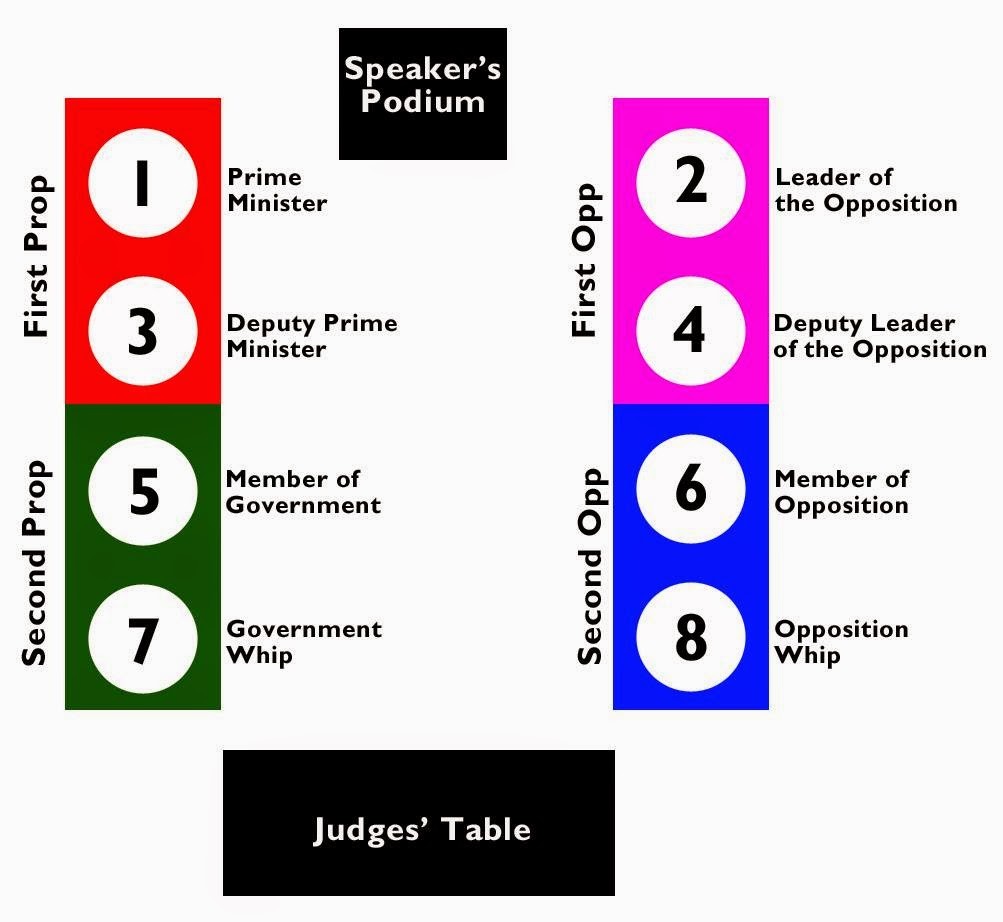British parliamentary debate – roles of the speakers
In British parliamentary debate there are different kinds of motions. If you understand the difference between these motions, you understand how you should create arguments and how the roles of the speakers change.
Open motions
Open motions are motions that ask for definitions. The motion only guides you into the general topic that you should speak about. You as the government have to define the topic. Here is a example of an open motion:
This house believes that coke is the thing!
This debate motion allows you to debate the Use of cocaine, The use of Coca Cola, You can speak about how the spread of popular culture impacts people around the world, You can speak about how the globalisation impacted peoples lives, etc.
You should not be too creative and just make up whatever, stick to the general idea that the organisers had in mind with the open motion. Open motions are seen less and less.
Semi Closed Motions
This house would send the boats back
Here you can talk about the immigration in the US, about the slavery, or about the immigration in the EU, but you can also talk about the fishing rights or about whale fishing.
Closed motions
Here are the examples on what to debate if you get a closed motion:
This house believes that the government has failed. You have to talk about a policy that a government has created and how it failed.
Now that we understand what is the motion about, here are the roles that you have to fulfill on different positions in the British Parliamentary debate format.

Roles of each team/speaker:
First Table:
1. Government:
- – Defines the topic and provides a debatable case, not a truism,
- – Should predict the oppositions arguments,
- – Should cover as much controversy as possible,
- – Should have the best possible arguments you can come up with.
Prime minister:
- – Defines the motion,
- – States the case division/split between the speakers,
- – Produces his positive matter (2 to 3 arguments)
→1 sentence to state your position - →explain it further
- →2 major forms of support (examples, philosophical points, quotes, …)
- →develop your arguments
- →summarize this
- – A powerful rhetorical conclusion
- →so because we need to confront this challenge … we are proud to propose …
Deputy prime minister:
- – Rhetorical introduction,
- – Preview your speech,
- – Answer the oppositions criticism,
- – Point out what part of their case they didn’t deal with,
- – Don’t be polite to the oppositions arguments,
- – Continue with your part of the constructive case
- – spend a half of your time on your constructive matter
1. Opposition:
- – Responds to the governments case,
- – Creates its own positive matter,
- – Covers as many of the opposing arguments as possible.
Leader of opposition:
- – A powerful introduction
- – Mention that you accept the governments definition, if you do,
- – Preview your case,
- – Rebut the government’s case,
- – You need to be specific and organized,
- – Spend no more than half of your speech on the governments arguments,
- – Develop at least two of your arguments,
- – Do not use defensive arguments (such as: not everyone will cooperate), but offensive ones (it is dangerous and harmful),
- – Conclusion.
Deputy leader of opposition:
- – Answer the governments defense (defend your attack),
- – Spend more time on their new argument (rebut it),
- – Sustain your speakers arguments,
- – Present your new constructive matter.
Second Table:
- – Plan but be flexible,
- – Prepare for as many contingencies as possible,
- – The government and the opposition both need an extension.
Extension:
- Produce a new positive case,
- Is consistent with the first table, but provides a different perspective,
- It cannot contradict the first table (do not backstab),

Hey, my name is Peter and I’m the author of this website and all the content on this page. I have been a debater, a debate trainer, debate tournament organizer and everything else with a debate prefix for more than 10 years and I’ve seen it all. I want to help everyone to be a better debater and if you want to help too, please let me know. Keep on debating!

i found this very helpful, keep it up and thank u.
Thankyou so much ! it was quite helpful for me !!!
this educative masterpiece has really helped our school
Could we use “in our house” from the very beginning of explanation?
Hey Ophelia, of course, you can do that, it does not matter, but there is a historical reason why we use This house … But choose whatever.